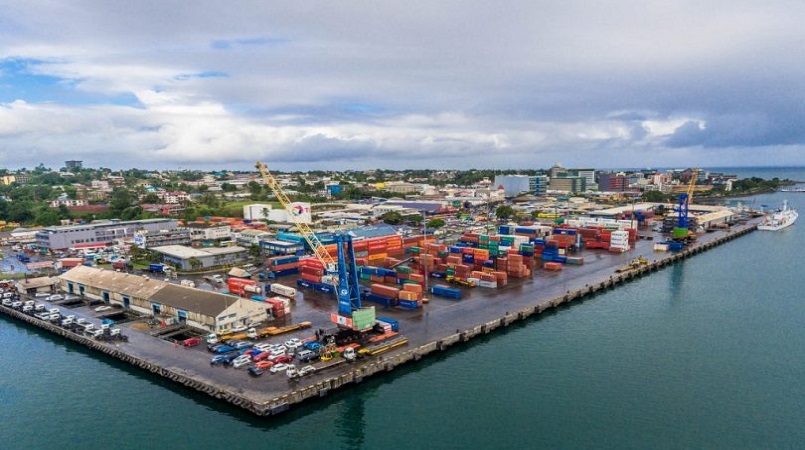
Digital trade across the Pacific is gaining new momentum, as Trade Officials, regional agencies and other international organisations concluded a virtual E-commerce regional workshop.
The workshop, part of the Pacific E-commerce Initiative, is enabling trade officials across the region to unpack findings of a Pacific E-commerce assessment, and a sub-regional assessment for the Melanesian Spearhead Group (MSG). These discussions will feed into a Pacific E-Commerce Strategy aiming to lift engagement in digital trade.
E-commerce has real potential to narrow distances and trade costs, and to promote diversification of Pacific economies. In the COVID-19 era, the ability of Pacific businesses to trade electronically has become even more important as E-commerce readiness is essential to COVID-proof Pacific economies and ensure their future growth prospects.
During the two-day meeting, more than 100 officials across Pacific nations discussed the significance of E-commerce and benefits to their economies. They looked at the state-of-play of E-commerce, one the five priorities of the Pacific Aid-for-Trade Strategy (PAfTS), and assessed digital trade readiness, in areas such access policy and regulatory environment, ITC infrastructure and skills, access to finance for e-commerce ventures, and digital payment systems.
In her opening remarks, Dame Meg Taylor, Pacific Islands Forum Secretary General noted “there is immense potential for e-commerce to help the Pacific region overcome its structural challenges. It is also crucial to mitigate the impact of COVID-19 and shape post-COVID recovery.”
For Pacific economies to make the most of the rising importance of e-commerce to development, “governments must tackle crucial constraints in areas such as trade and ICT infrastructure, digital skills, regulations, access to formal financial services and digital payment systems” noted the Secretary General.
George Hoa’au, MSG Secretariat’s Acting Director General said that, “The current times and what it poses for face-to-face businesses and goods transactions, makes it all the more relevant for supporting e-commerce as a business model for individuals and businesses in the Pacific region.”
Worldwide e-commerce sales increased by 18% this year and are expected to double by 2023. Mr Hoa’au commented “Against such a trend, I am confident that the future of E-commerce in the Pacific region is bright. It will make an immense contribution to unlock opportunities available through the Melanesian Free Trade Agreement for businesses, and exporters in the MSG economies.”
Post workshop consultations on the Regional E-commerce Strategy will continue, towards validation work on a draft Strategy and Roadmap for implementation in 2021.
The Pacific and MSG E-commerce Assessments drew upon a variety of evidence, including ten national E-commerce Assessments developed by a Pacific nations in a global partnership between the PIFS, the MSG Secretariat, the United Nations Conference for Trade and Development (UNCTAD), the European Union (EU) TradeCoM II facility, the Enhanced Integrated Framework (EIF), and the Australian Department of Foreign affairs and Trade (DFAT).
The joint MSG Secretariat and Pacific Islands Forum Secretariat event was supported by the European Union (EU) TradeCom II programme....
Photo file
